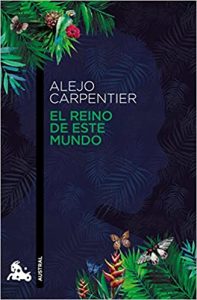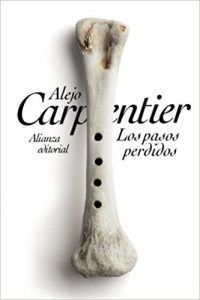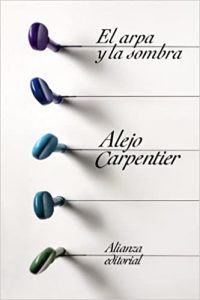Halfway between the emerging Latin American literature and the surrealist currents of the already established XNUMXth century, Alejo Carpentier it built bridges between Europe and South America.
His open spirit made possible that rich mixture of cultures and tendencies that always bring the creator closer to virtuosity. A virtuosity that, during those years in Latin America, professed cut and Carpentier himself.
El imaginario by Alejo Carpentier it could hold everything. The magical influences of that surrealism capable of decomposing reality to rethink it as a new puzzle, made it possible for his narrative proposal to move from the real events to its deepest transmutation.
Fantasy converted into the synthesis of everything real, images and metaphors capable of presenting us with what equates us all as humans, what matches any society here and there. The estrangement as the possibility to relearn the world from spiritual and material uprooting.
3 essential novels by Alejo Carpentier
The kingdom of this world
Haiti represents the liberation of the South American people. Its first revolts paved the way for the discovery of each country in South America as something free from the irrepressible colonizing actions. Put like that, to laymen in Haitian history it may seem like an unappetizing argument. The funny thing is how Carpentier tells it ...
Summary: A novel described by Mario Vargas Llosa as "one of the most complete that the Spanish language has ever produced", El Reino de este mundo (1949) recreates in an incomparable way the events that, straddling the XNUMXth and XNUMXth centuries, preceded, followed Haitian independence.
Stimulated by the prodigious original story and using a masterful command of narrative resources, Alejo Carpentier (1904-1980) embarks the reader, thanks to the power of his word, in an exuberant, wild and legendary world in which they shine with their own light the "lycanthrope" Mackandal, in whom popular rebellion and supernatural powers are combined, and the dictator Henri Christophe, who gave birth to architectures worthy of Piranesi in his palace at Sans-Souci and the citadel of La Ferrièrre.
The lost steps
Where do we come from and where do we go? The deepest questions of humanity do not find absolutely certain answers in science. And where science offers loopholes of doubt, literature must enter with authority and self-sufficiency.
Summary: A masterpiece of Latin American narrative and a perfect illustration of the concept of "the marvelous real," published in 1953, it inaugurated the period of creative plenitude of Alejo Carpentier's work.
Inspired by personal experiences lived by the author in the interior of Venezuela, the journey of the anonymous protagonist of the novel that leads him to go up the Orinoco to the interior of the jungle in search of a primitive musical instrument is also revealed as a setback in the time, through the most significant historical stages of America, until the very origins, until the time of the first forms and the invention of language.
The harp and the shadow
The tribal is something that still lingers as an echo throughout South America. The encounter with Europe supposed an impossible miscegenation between those who still survived given their myths and beliefs and those who believed themselves beyond their own ancestral references. The role of Christopher Columbus is fundamentally understood. The encounter between two worlds could have been something else ...
Summary: In 1937, when making a radio adaptation of Claudel's "The Book of Christopher Columbus" for Radio Luxembourg, I was irritated by the hagiographic endeavor of a text that attributed superhuman virtues to the Discoverer of America.
Later, I came across an incredible book by Léon Bloy, where the great Catholic writer requested nothing less than the canonization of someone he compared, plainly, with Moses and Saint Peter. The truth is that two pontiffs of the last century, Pío Nono and León XIII, backed by 850 bishops, proposed the beatification of Christopher Columbus three times to the Sacred Congregation of Rites; but the latter, after careful examination of the case, flatly rejected the application.
This little book should only be seen as a variation (in the musical sense of the term) on a great subject that continues to be, moreover, a very mysterious subject ... And let the author say, shielding himself with Aristotle, that it is not the poet's office (or let's say : of the novelist) "to tell things as they happened, but as they should or could have happened."



